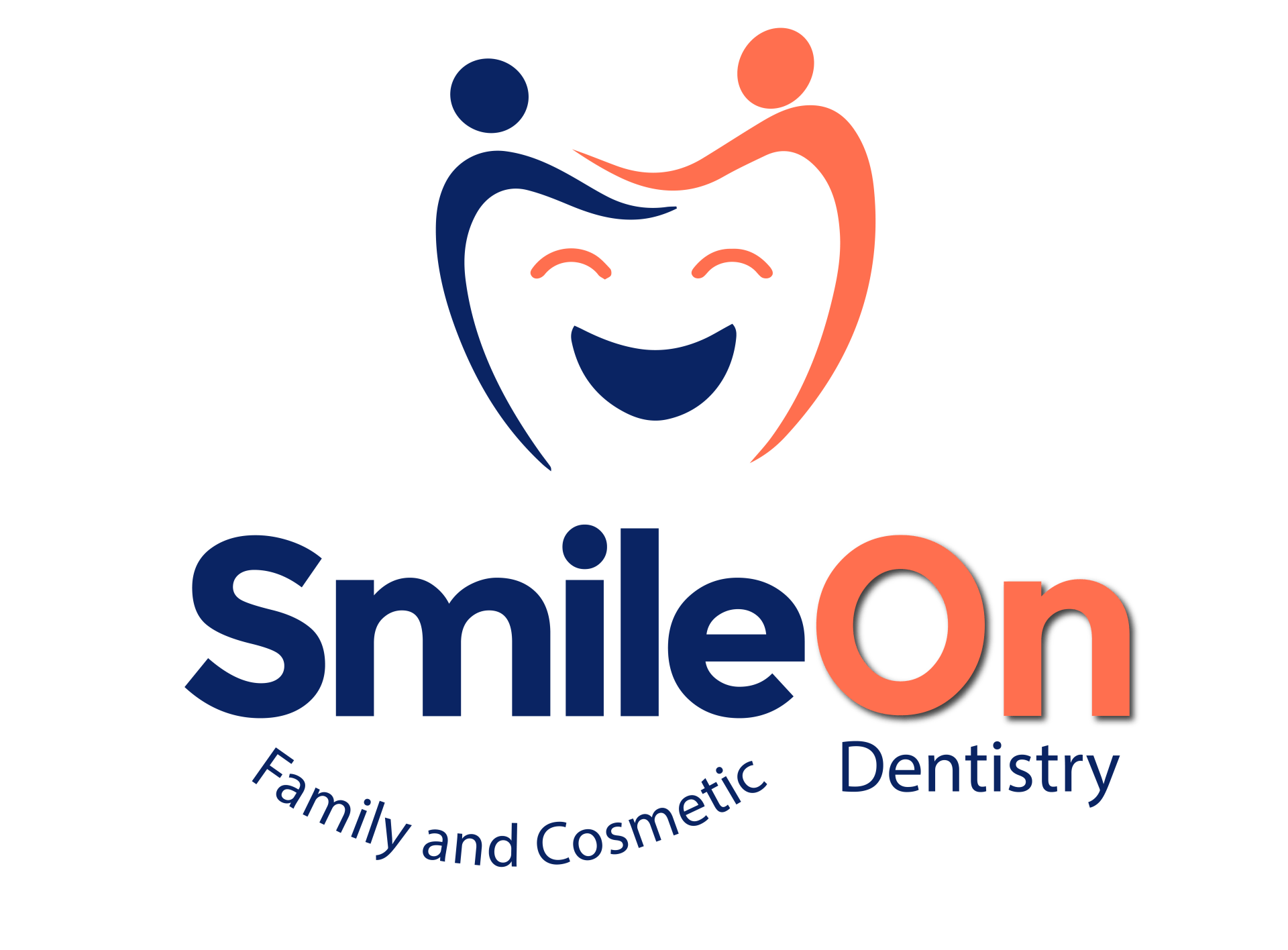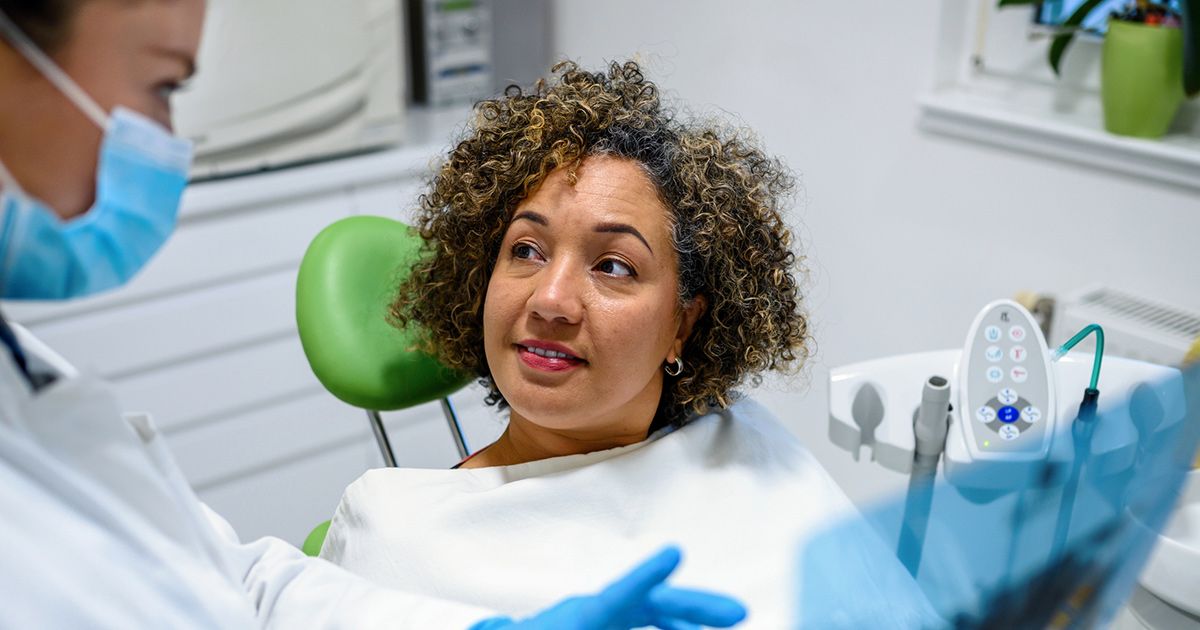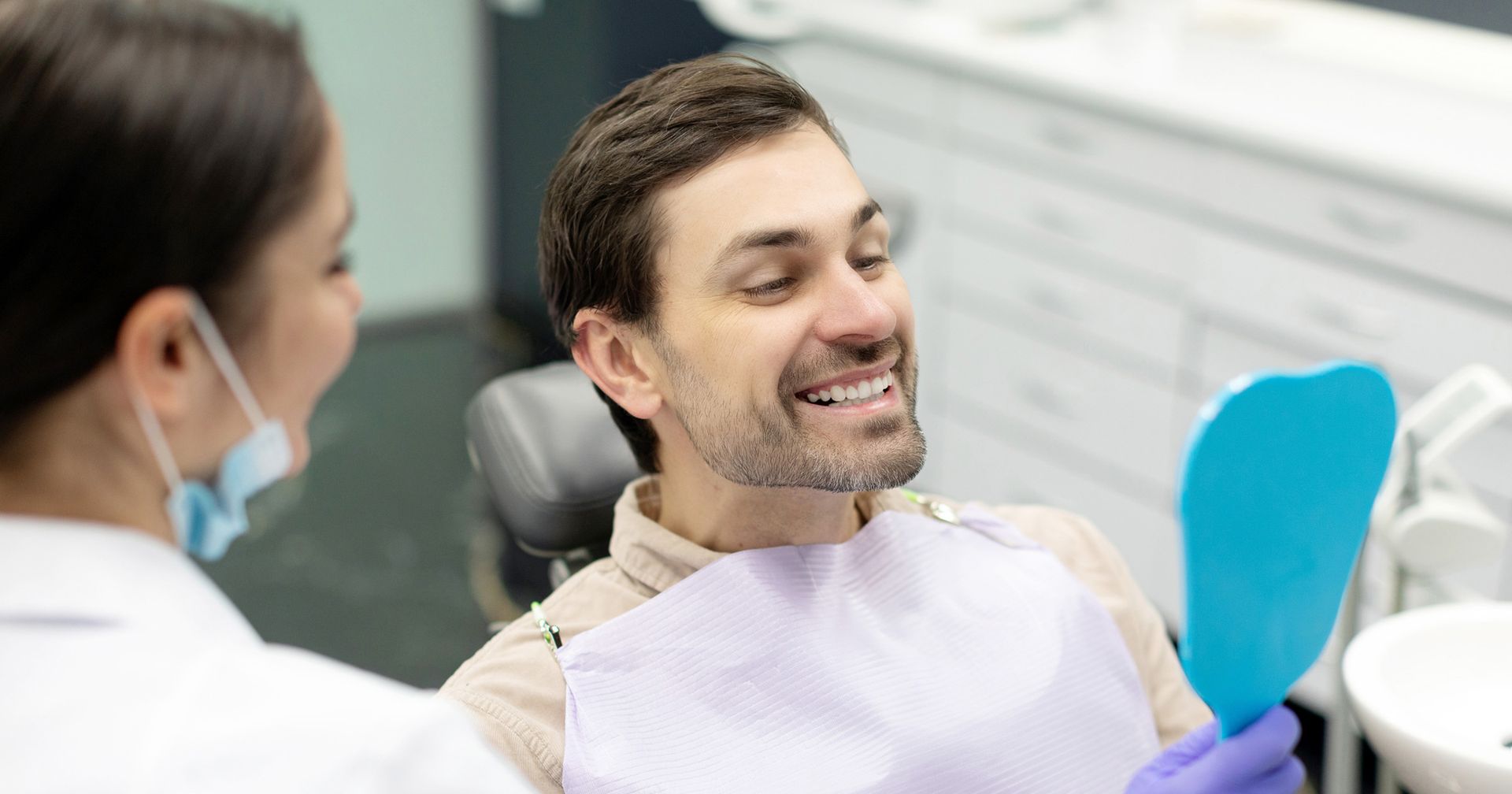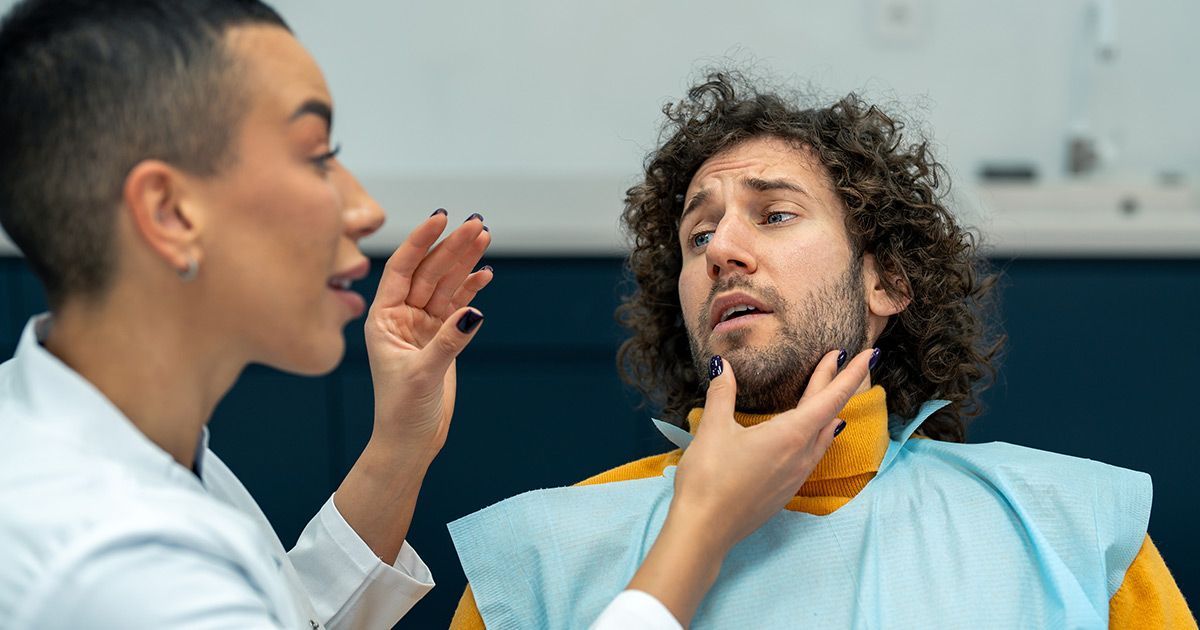In-Network with Major PPOs. Early Morning & Evening Appointments Available.
Se Habla Español
What to Expect From the Dental Implant Process in Centreville, VA
Are you thinking about getting dental implants in Centreville, VA? This is what you can expect from the dental implant process.
Have you stopped grinning to hide that gap in your smile? One missing tooth can have a major impact on your appearance and oral health. Instead of avoiding treatment, talk to your Centreville dentist.
With dental implants in Centreville, VA, you can restore your smile and ability to chew. That's only the start. Read on to learn more about the dental implant procedure process today!
Initial Evaluation
Your dentist or oral surgeon will first complete a comprehensive examination. They'll consider the condition of your jawbone to determine if you're an ideal candidate for the procedure.
Your dentist may recommend dental implants if you have:
- One or more missing teeth
- An unwillingness to wear dentures
- Healthy oral tissue
- A jawbone that's reached full growth
- Adequate bone for the implant
- Good overall health
- A desire to improve your speech
- Time (the procedure takes months)
During this assessment, your dentist will schedule X-rays and take impressions. Let your dentist know if you smoke or have a medical condition. Inform them of any medications you're already taking.
Depending on your condition, you may need antibiotics before your first surgery. If your teeth are crooked, your dentist may recommend orthodontic treatment first. Straightening your teeth will ensure there's room for your dentist to install the implant.
About three million people currently have dental implants. Implant dentistry has among the highest success rates of any medical procedure. Dental implants can:
- Restore your ability to chew
- Look and feel natural
- Improve your quality of life
- Boost your self-esteem
- Restore good health
- Help you avoid bone loss
- Preserve the health of bone and gums
- Keep adjacent teeth stable
- Improve the appearance of your smile
As with any procedure, there are some risks involved. Make sure to visit an experienced dentist in Centreville, VA. They can prevent complications, including implant failure or injury during the procedure.
Tooth Extraction
If a small amount of your tooth remains, your dentist will need to remove it before your implant procedure. Talk to your dentist about anesthesia options beforehand.
Many dentists use a local anesthetic like lidocaine or novocaine. They'll numb the area before removing the tooth. You'll only feel a small tug or pressure while the tooth is extracted.
Make sure to follow your dentist's post-surgery plan. Following their instructions can help you avoid pain or other complications.
Placing a Dental Implant
Talk to your Centreville dentist about the different types of implants they offer. Endosteal implants are the most common. They're surgically placed into your jawbone.
Your dentist will likely recommend endosteal implants if your jaw is strong enough to hold the implant. If you lack sufficient jawbone volume, they may recommend subperiosteal implants. These implants are placed above the jawbone but below the gum line.
If your jawbone isn't strong enough, you may need bone grafting first. Your mouth will exert pressure on your jawbone when you chew. If your jawbone can't support the implant, the implant could fail.
Your dentist can rebuild your jawbone using synthetic bone or bone from another location in your body. Once your jawbone heals, they can place the implant.
Your oral surgeon will cut open your gum to expose the bone. They'll drill a hole into the bone to place the dental implant metal post. The post will function as the tooth's root.
The surgery itself takes about 90 minutes. However, the entire process is stretched across multiple appointments. In total, it could take six to 12 months.
After your first surgery, you'll need to wait for osseointegration to occur. This process allows the bone to grow around the dental implant. Osseointegration ensures the dental implant will remain in place.
Placing the Abutment
After a few months, you'll schedule an additional surgery. Your dentist will place the abutment; the piece that connects the implant to the dental crown.
During this surgery, your dentist will:
- Reopen your gums
- Attach the abutment to the implant
- Close your gums around (not over) the abutment
Once your dentist places the abutment, you'll need to wait for your gums to heal. After two weeks, they can attach your crown.
Attaching the Crown
Your dentist will make impressions of your mouth and teeth to make your dental crown. The crown will look and function like your natural teeth. Your dentist won't attach the crown until your jawbone is strong enough to support it.
Talk to your Centreville dentist about the different types of artificial teeth available. A removable option will snap onto the abutment. You can remove it to clean or repair the crown.
A fixed artificial tooth is permanently cemented or screwed onto the abutment. You can't remove it for cleaning.
Post-Surgery
It's normal to experience mild discomfort following your treatment plan. Common symptoms include:
- Swelling around the gums or face
- Minor bleeding
- Pain around the implant site
- Bruising on your gums
Make sure to follow your dentist's post-surgery plan to the letter. For example, they'll instruct you to eat soft foods after your surgery. Avoid consuming any hard candies or crunchy foods.
Consider applying a cold compress to your face to ease pain and swelling. Consult your dentist before using over-the-counter pain relief medication.
Avoid smoking, which can increase the likelihood of an infection. Instead, prioritize your oral health. Make sure to floss daily and brush twice a day.
Let your dentist know if your swelling or discomfort gets worse in the days following your surgery. Most surgeons use stitches that dissolve on their own. If they don't self-dissolve, schedule a follow-up appointment to have them removed.
Schedule routine dental check-ups to ensure your dental implants are functioning as intended. Routine appointments can help you spot problems before they progress.
Choose Dental Implants in Centreville, VA
You don't have to struggle to talk, chew, or smile with a missing tooth. Instead, consider getting dental implants in Centreville, VA. With treatment, you can restore the appearance and functionality of your beautiful smile.
Ready to begin dental implant treatment? Look no further than SmileOn Dentistry. Our team prioritizes the quality of care and comfort for our patients.
As a family-owned dental practice, we pride ourselves on offering individualized care.
Book your appointment to discover your healthy, beautiful smile!
Office Hours
- Mon, Wed
- -
- Tue, Thu
- -
- Friday
- -
- Sat - Sun
- Closed
Accessibility Statement | Privacy Policy | Cookie Policy | Terms and Conditions | Notice of Privacy Practices
All Rights Reserved | SmileOn Dentistry
703-952-5706












